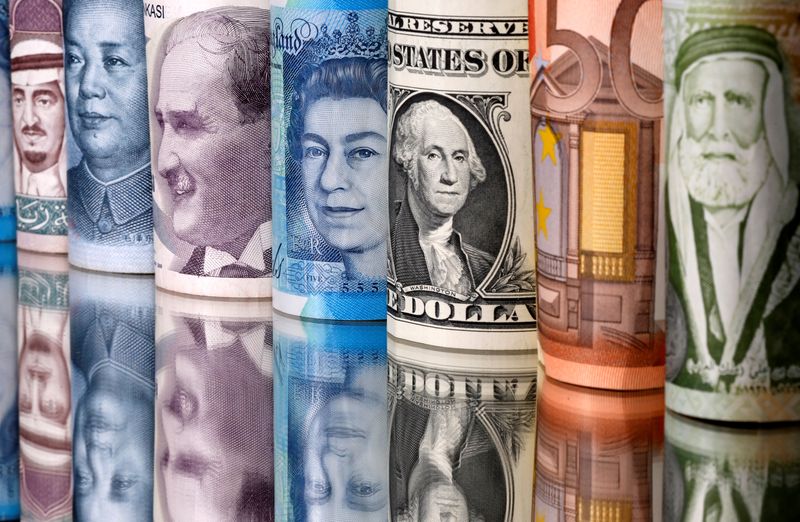By Yoruk Bahceli
(Reuters) - Global financial conditions have reached their tightest since May 2009, according to a widely watched Goldman Sachs (NYSE:GS) index, a possible sign of a world economic slowdown.
Financial conditions reflect the availability of funding in an economy and, perceived as strongly correlated with future growth, are watched closely by central bankers. How loose or tight they are dictates spending, saving and investment plans of businesses and households.
Goldman's index rose to 100.92 points as of Thursday, 130 basis points tighter than before Russia's February 24 invasion of Ukraine.
Graphic: GS global financial conditions: https://fingfx.thomsonreuters.com/gfx/mkt/zjpqkolojpx/KNQdg-global-financial-conditions-at-tightest-since-2009.png
Conditions in emerging markets reached their tightest since December 2008 at 102.47 points, a 230 bps move since the invasion.
Russian conditions are at the tightest on record at 128.83 points, the data showed, from around 98 at the start of February, the tightest on record in data going back to 2007.
Graphic: GS Russia financial conditions: https://fingfx.thomsonreuters.com/gfx/mkt/xmpjoewelvr/aWMrB-russian-financial-conditions-tightest-on-record%20(1).png
The tightening is an unwelcome development for a world economy already threatened by the knock-on effect of surging commodity prices and supply chain setbacks.
Goldman Sachs, which uses metrics such as exchange rates, equity swings and borrowing costs to compile the most widely used financial conditions indexes, has in the past shown a 100-basis-point tightening in conditions crimps growth by one percentage point in the coming year.
Richard McGuire, head of rates strategy at Rabobank, expects conditions to tighten further.
"Central banks are focused on inflation rather than growth so any hope of a concilatory stance reflective of the fact that demand is weakening is likely to be disappointed," he said.
The European Central Bank surprised markets on Thursday when it outlined plans to end its bond purchases in the third quarter, paving the way for rate hikes. Given the economic hit from the Ukraine crisis, many investors had expected it to refrain from making firm commitments.
Commodity importers such as China, Turkey, Korea, Japan and India may be hardest hit by the price pressures resulting from sanctions against Russia, ratings agency Moody's (NYSE:MCO) said.
"You have to brace yourself for demand destruction either delivered by central banks, which in itself tightens financial conditions, or via eroded profit margins, negative real income growth without central bank growth," McGuire said.

That can cause further market selloffs, another channel through which conditions tighten, he added.
None of the metrics Goldman tracks signal relief. The dollar is near two-year highs, world stocks have fallen more than 10% this year and companies' borrowing costs are sharply higher as investors assess the hit to companies' profits.